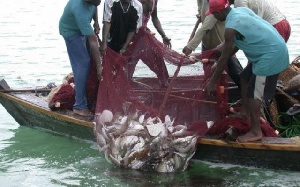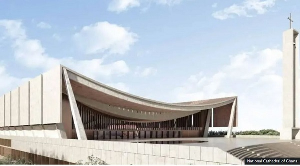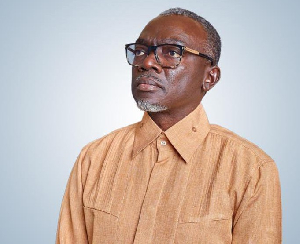Fosu Lagoon is a vast expense of water that lies between the Robert Mensah Sport Stadium and the Elmina road in Cape Coast. Since time immemorial, it has been the fishing ground for the local fishermen, despite its heavy pollution. What is not known to the local folks and Ghanaians in general though is that it could also be a source of income, which if exploited, could rake in millions of dollars in revenue to the State.
According to IMANI Ghana, the Fosu Lagoon could be turned into a fishing harbor to generate employment for the local people and Ghanaians in general.
“Research has shown that the overall cost to be incurred in the construction of the international standard fishing/landing site in place of the Fosu Lagoon will be $250 million.
“This is made up of $150 million construction cost, and $100 million relocation cost for relocation of the Metropolitan Hospital and the Nurses and midwife Training College, which have been eroded by the sea salt,” IMANI Ghana indicated in a comprehensive analysis of the commercial viability of project.
According to IMANI, if the project is executed by the government with the support of her development partners, it could rake in a whopping $14.4 million per year over the first couple of years. The economic think tank based its projections on the current prices/fees charged by the existing fishing harbor.
“Estimates are that any initial investment, given a moratorium period of 5 years, can be recouped together with adequate returns over 25 years(construction period inclusive), given the cost of capital to be between 3% to 5% which could be sourced abroad.”
The President of IMANI, Franklin Cudjoe, told this reporter in a follow up interview yesterday that based on the analysis that they have done, Sino Hydro, a Chinese electrical firm that constructed the Bui Hydro Dam at Bui in the Brong Ahafo Region has shown interest in executing the project, provided the government of Ghana is prepared to support it.
The government is at the moment adopting all sorts of economic strategies to arrest the fall in revenue generation. This includes the raising of taxes on some essential commodities and also going to the international capital market to borrow $1 billion in the form of bonds to finance projects.
IMANI thinks this craze for more revenue could be boosted if a project, such as the development of the Fosu Lagoon is pursued.
“The government, through the ministry of Fisheries and Aquaculture currently devotes over $20million per annum for the development of the sector. At this rate, one can be sure that over the next 5 years, we would have invested over $100million with nothing to show.
“A well-targeted investment plan aimed at Fosu Lagoon will obviously involve in initial outlay of $250 million, are given the rate of return, the payback period will be approximately 12 years ipso facto.”
“The project will now be self sustaining and all benefits after this payback period will be economic profits to government. What is more, private business persons will have created over 100,000 direct and indirect jobs.
“If this is expanded to include the over 14 coastal and fishing communities along the stretch of Ghana’s shores, we are sure to be one of the powerhouses below the Sahara in the export of fish and its related product,” noted IMANI.
Business News of Thursday, 5 May 2016
Source: Ghanaian chronicle

















